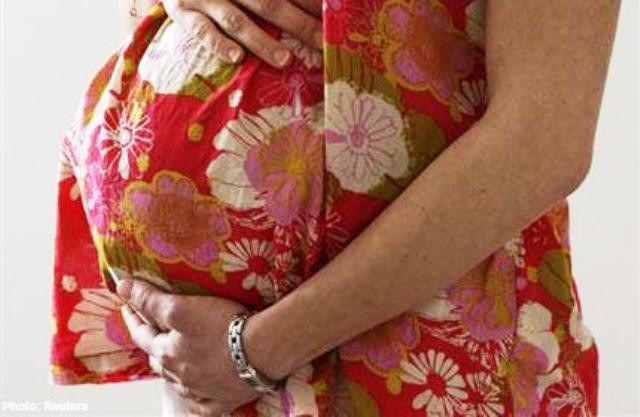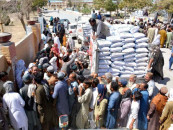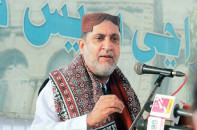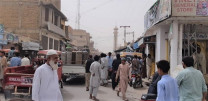A national disgrace
Balochistan is an overlapping Venn diagram of conflict, the bottom layer of which is women and children.

When you eat fruits, remember not to refrigerate them for a long. PHOTO: REUTERS
For a pregnant women in Balochistan, life has deprivation and barbarity added layer upon layer. Many do not get a basic antenatal care during their pregnancies because their families believe that a visit to the obstetrician or gynaecologist somehow impugns the family ‘honour’ — so even where antenatal services exist they may be underused because of so-called ‘tradition’. According to a detailed report in this paper, over 70 per cent of women in Balochistan are not permitted to see a gynaecologist at any point in their pregnancy because of the ‘disgrace’ that would bring upon the family. When it comes to birth, the horrors multiply. Women in the early stages of labour are loaded into donkey carts which are then driven over rough ground in the hope and expectation that labour will be hastened. It kills some of them and their babies. These are not myths and legends, this is what happens in the 21st century for many women in this most undeveloped of our provinces.
For many women in Bolan and Turbat where some rudimentary health services exist, access to them is denied because of the appalling security situation, with any and all health care for everybody, not just expectant mothers, being delivered against a background of a bubbling insurgency and a bloody sectarian conflict, a dark and bloody matrix that claims lives every day.
One of the few women politicians in the province, Yasmeen Lehri, of the ruling National Party (which governs Balochistan in a coalition with the PML-N), points to the Pakistan Demographic Health Survey 2012-13 (PDHS) that presents truths stripped to the bone. Antenatal care for the women of Balochistan is a lot lower than in any other province — 31 per cent as opposed to Punjab and even rural Sindh, which both record 78 per cent, and far-flung Hunza that has over 80 per cent of women receiving antenatal care from a skilled practitioner.
Maternal mortality is among the highest in the world, with 800 per 100,000 women dying whilst giving birth, a figure all the more depressing when weighed against the global figure for maternal mortality that the WHO puts at around 800 a day. The average maternal mortality rate is 240 per 100,000 in developing countries, giving Balochistan more than three times the global average. A Unicef report, in 2014, said that for every 1,000 live births, 11 children will die before their fifth birthday, and 97 of those will die before they have reached their first birthday.
These figures ought to be a matter of national disgrace, yet they will barely register for the majority in Pakistan for whom Balochistan is far way, covered with sand for the most part and of little interest beyond the headline events such as bombings or the driving out of religious minorities. It is almost as if Balochistan has become the poor relation that is kept at the back of the house and ignored by one and all, and it is hardly surprising that sectarian atrocities aside, there is a bubbling nationalism that feeds the cycle of conflict. Balochistan is an overlapping Venn diagram of conflict, the bottom layer of which is women and children who die by the thousands, killed as much by ignorance and primitivism as they are by the eternal conflict they are surrounded by.
Published in The Express Tribune, May 6th, 2014.
Like Opinion & Editorial on Facebook, follow @ETOpEd on Twitter to receive all updates on all our daily pieces.



















COMMENTS
Comments are moderated and generally will be posted if they are on-topic and not abusive.
For more information, please see our Comments FAQ